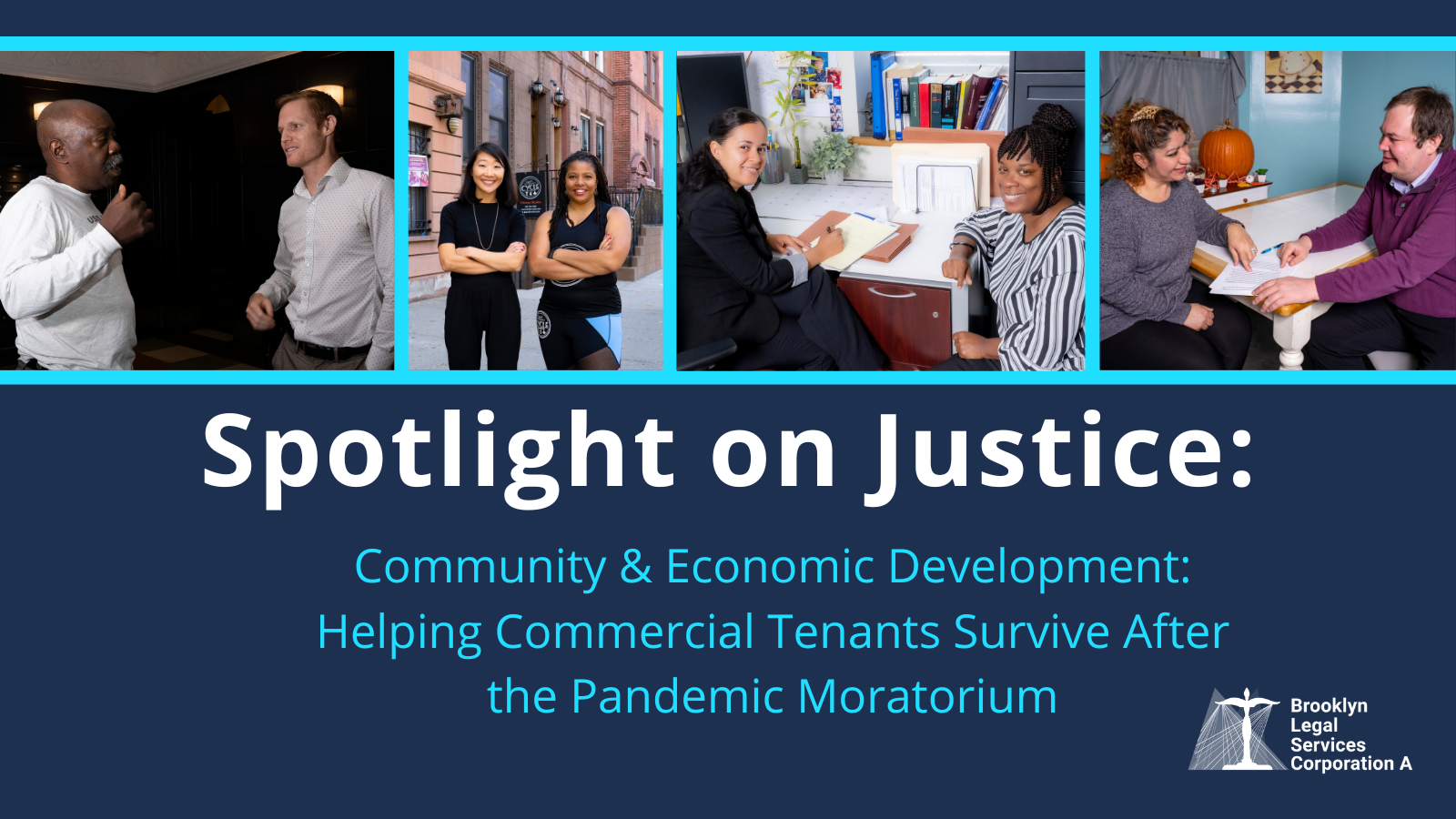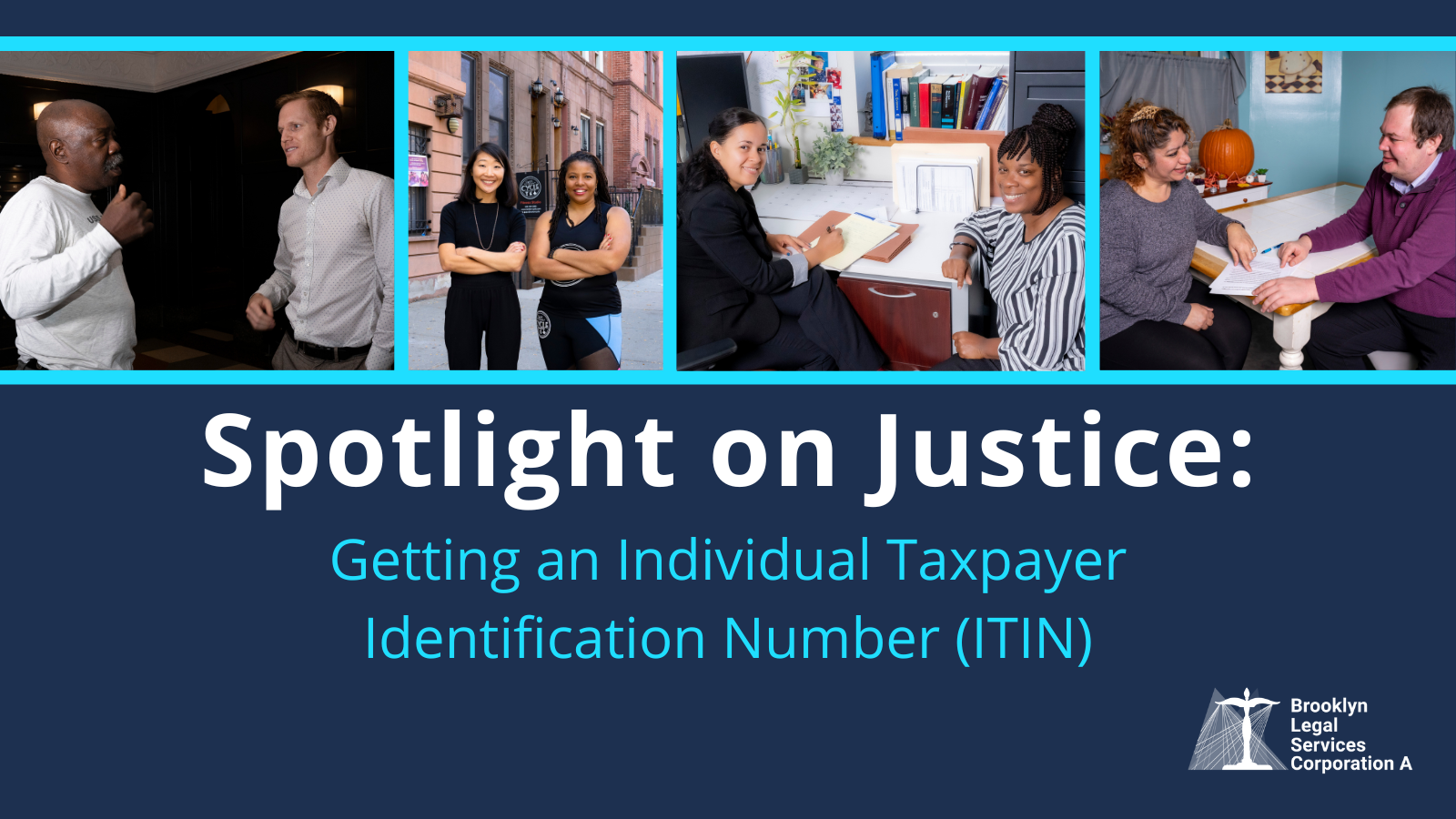By Cynthia Rosa Disclaimer: This advice is for informational purposes only and is not legal…

CED: Helping Commercial Tenants After the Pandemic
By Alex Grzebyk
Small businesses across all five boroughs have been greatly impacted by the end of the eviction moratorium last January. According to the City, more than 26,000 businesses closed between the start of the pandemic and the spring of last year—national data shows New York State had the highest small business closure rate in the country. At Brooklyn A, the Community & Economic Development (CED) Program provides transactional legal counsel to nonprofits and small businesses that sustain and empower low-income communities in New York City. Through our partnership with New York City’s Department of Small Business Services and its Commercial Lease Assistance Program, we represented 836 unique businesses across the city last fiscal year. We are proud to be a support mechanism for the bodegas, pizzerias, patty spots, and neighborhood laundromats that employ thousands of New Yorkers and that help give New York City’s neighborhoods their sense of community.
It’s no secret that small businesses have been hurting since the onset of the COVID-19 pandemic. When the moratorium was in effect, landlords were unable to evict their commercial tenants regardless of their inability to pay rent. This gave the CED legal team greater leverage in negotiating repayment plans, waivers of rent arrears, and other concessions, allowing our clients to get back on their feet. It meant local institutions could keep their doors open, continue to serve their communities, and keep owners and their employees working through the toughest months of the pandemic. However, one year since the moratorium lifted, many small businesses are still reeling from the impact of the early-pandemic shutdown and new economic stressors. Here are some of the trends the CED has noticed over the last year among small businesses.
Landlords less cooperative with tenants
Since the end of the moratorium, our small business clients have been faced with increasingly difficult landlords who are unwilling to accept reasonable payment plans or grant businesses small concessions for past arrears. Many New York City businesses did everything they could to stay afloat and continued paying rent through the first year or two of the pandemic, but ultimately fell behind—as nearly any business reliant on in-person activity would have. Now that (we all hope) the worst of the pandemic is behind us, landlords see an opportunity to push out longtime tenants and raise rents. This has led to an increase in landlords bringing eviction actions against small business tenants, including those that are now paying their full rents and trying to work out a payment plan for past arrears.
Although our legal work has become more challenging after the end of the moratorium, the CED Program still has tools it can use to achieve important outcomes for our small business clients. We continue to successfully negotiate rent reductions and payment plans for arrears, even with obstinate landlords. We have developed a robust practice in negotiating with landlords even as eviction cases are moving through the court system, working side-by-side with tenant-side litigation counsel.
When there are no further ways for a business to remain in a commercial space, the CED Program negotiates vacate and surrender agreements with their landlords. In these agreements, our clients agree to vacate their spaces in exchange for full waivers of all rent arrears and releases of liability for the business for rent due in the future, as well as from any personal liability. While this unfortunately means the business must shut its doors and, often, forfeit its security deposit, it allows owners to walk away from the business without the threat of litigation or a stack of bills and threatening letters insisting that the owner pay the tens of thousands of dollars they owe under the terms of the lease. For example, Building Supplies Inc. (BSI) a former CED client [name changed to protect the client’s privacy], was forced to shut down its Bronx location after its landlord commenced a nonpayment proceeding despite BSI offering to enter into a repayment plan for its arrears and having four years remaining on its lease term. The CED Program was able to negotiate a vacate and surrender agreement that not only afforded BSI ample time to vacate the premises but also granted BSI a waiver of all its arrears, saving the business $690,000 and allowing it to concentrate on building back its business at its other location.
Sources of relief
Unfortunately, small business owners are now left struggling with pending lawsuits and limited access to financial assistance programs. There are several small interest-free loan programs available to small businesses, including the Brooklyn EXCELerate Loan Fund and the Hebrew Free Loan Society. Recently, Mayor Eric Adams and Small Business Services Commissioner Kevin Kim announced the creation of a $75 million NYC Small Business Opportunity Fund, offering loans up to $250,000 with a four percent interest rate. Another recent bright spot came last month when New York City approved $672 million in utility debt relief for small business owners. This money will be automatically applied to businesses with unpaid debts and owners will not need to apply for the relief.
Getting repairs still a battle for many small business tenants
Commercial tenants are regularly forced to deal with difficult and costly repairs that are the contractual responsibility of landlords. When confronted with these repairs, it is common for a landlord to drag his or her feet, leaving the tenant to play a game of chicken: either the tenant waits for the landlord to deal with the issue (often at a detriment to their business) or the tenant pays for the repairs out of pocket. While doing those repairs themselves might seem like the fastest solution for a small business tenant, when a tenant pays out of pocket, it can prove impossible to recover the costs of repairs without undertaking a costly and time-consuming lawsuit. We strongly encourage small business owners in this situation to contact us or another lawyer to help them confront their landlord to formally demand the repairs they have a contractual right to receive.



